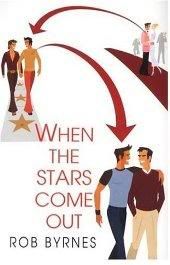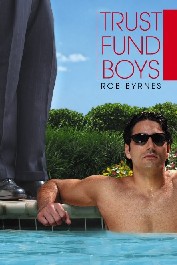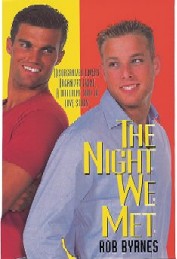EXCERPTY GOODNESS #2
Only ten more days or so until When the Stars Come Out is in bookstores! But in the interests of heightening your already heightened interest, allow me to present... another excerpt.
David R. Carlyle III was not a punctual man. He was also not, in his very own self-critical estimation, the most responsible man on the planet. Although he held a senior editorial position at the publishing house Palmer/ Midkiff/ Carlyle, he knew that the fact that his last name was Carlyle had everything to do with it.
And he was fine with that. In the world of David R. Carlyle III, he was the rule, not the exception. A random twirl of his Rolodex would give up the names of dozens of other Roman-numeraled scions of Manhattan, none of whom felt any special guilt for the good fortune of their birth. They lived well, they gave back from time to time, and they generally believed that if fate was going to smile on any individual, it was just as well it was them.
In fact, David Carlyle thought of himself as, perhaps, just a bit better than his peers. Because he did hold down a job, and he did go to his office more days than not, and he did contribute not only to the economic bottom-line, but also to the nurturing of young talent. And although he was usually a genuinely humble man – one of his best friends was actually a young woman in the lower wage scales, and he loved bringing her to society events both for her company and the deflating effect her presence had on upper-class pomposity – he did have his moments when he thought of himself as a modern-day Medici.
But mostly he thought of himself as plain old David Carlyle, one of the good guys who just happened to have enough family money to keep him in homes on Fifth Avenue and in Southampton without ever giving a thought to his finances. One of the good guys who could afford to redecorate every year. One of the good guys who could go to the ballet on Tuesday, the bars on Wednesday, and, on Thursday morning, buy a book idea from an aspiring writer, before driving to the Hamptons for another long weekend. All in all, he thought, it was not a bad life for one of the good guys.
But if he wasn’t extraordinarily punctual or responsible, he expected those attributes from his writers. Which is why Noah Abraham was beginning to piss him off.
One year earlier, Noah – the son of his lawyer, Max – had sat across from him in his office and promised to deliver a manuscript on closeted gay congressional staffers. Contracts were signed, and Noah had been given ten months to deliver that manuscript. In return, David had commissioned a contract and, eventually, an $8,000 advance, half of which was payable upon signing of the contract.
Noah had signed the contract, cashed the check, and then essentially disappeared.
And now, two months late on his delivery date, he had finally scheduled an appointment, which David knew was solely – if coincidentally – because he had visited his father’s sickbed the day before. That wasn’t why David had gone to the hospital, but if it spurred things along, all the better.
It was about time, too, because things were getting a bit awkward whenever he ran into Max and Tricia Abraham on the social circuit. Almost as awkward as that time a few years earlier, when David used a favor with Max to get legal assistance for one of his authors, and was repaid when the author ignored almost all of Max’s advice before he vanished. Now that was an awkward period in the relationship between David and Max, assuaged only slightly – and exclusively on David’s end – when the vanished author’s book became a best-seller. Sometimes, vanishing is a good career move.
Noah, though… Noah had not been punctual, nor had he been responsible. Nor had he even had the decency to dramatically disappear. He had simply taken a relatively small amount of PMC money and not delivered. And it wasn’t the money, David kept telling himself; it was the principle. As a gay man himself, David felt a special need to give back to his fellow gay writers, and when one of them didn’t deliver – as occasionally happened – David Carlyle felt personally wronged.
But Noah had now taken the initiative to contact him, and although David was certain it was only because of the hospital visit, no one was holding a gun to the young man’s head, so he felt slightly better. Maybe Noah would walk into his office with 100,000 words or so tucked under his arm and…
“David?”
David looked up from whatever it was he had been trying unsuccessfully to read and saw Noah in his doorway. Nothing was tucked under his arm. He frowned.
And did I mention that in ten short days, you can read the entire book? Life is good for you...








<< Home